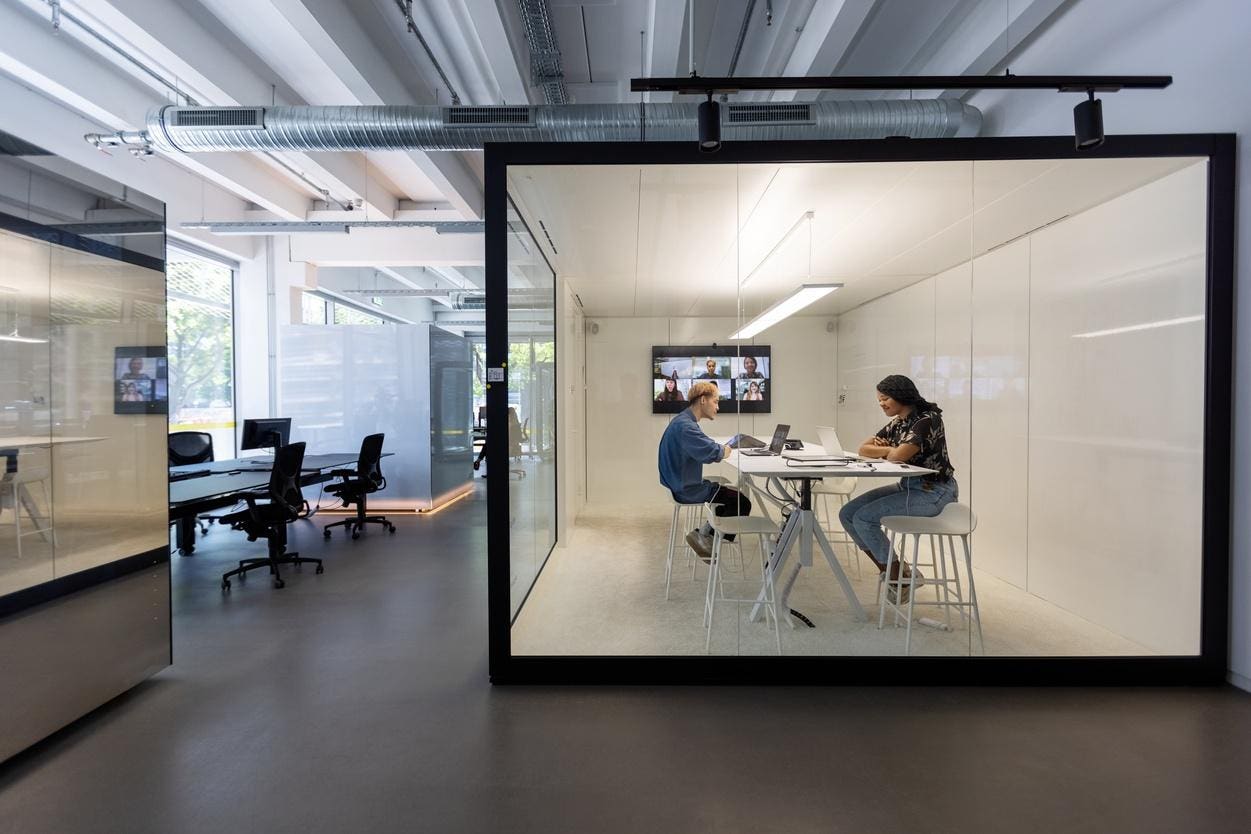Companies With Flexible Remote Work Policies Outperform On Revenue Growth::According to a new report, companies with flexible remote work policies outperform firms with more restrictive policies when it comes to revenue growth rates.
My company just officially closed our office and made everyone permanent WFH. Best news I’ve had all year!
I had that happen at the start of COVID. Then I went to another wfh job. Then that job started forcing two days in office a week 😑
It’s at that point I’d start looking for a new job.
Oh I am, IT job market is weird right now though
Lol we did the same from the start of the pandemic and the growth has been insane
I haven’t been to my office since 2020. Loving wfh.
i.e. a company that understands the sunk cost fallacy.
I am LESS productive in the office. It’s distracting. I have to commute. There is less time for hyper focus.
These results don’t surprise at all.
Joke on me. My company is full remote work, but add more meetings because we have to communicate live somehow, even though we can work asynchronously. Less focus time for me.
Damn… I still prefer that over going into the office at least, since I don’t have to commute
Yeah, anything is better than going to the office. Wish people are more responsive on Slack, though.
I’m definitely more productive in the office, doesn’t mean I hate it any less though.
Not surprised, I’ve seen a lot of people say they are willing to work for less if they can work from home. Those who support WFH will get the best talent cheaper.
I had a recruiter after me hard one time. They had a company they were trying to grow and had already plucked away a couple of guys from my team.
He offered what he thought was an aggressive offer based on what the other guys said they were making.
I asked about WFH, he said the company preferred people in the office to collaborate. This was my third time asking this, the first two times I told him this was a non-starter, and this offer was to try to go above and beyond that to sway me with dollar signs.
I laid out the costs that were involved: commuting, car, gas, childcare, lunch, etc. and how his aggressive offer still had me coming up behind, and that’s before I even take into account time and comfort lost.
He’s called back again twice, and it’s the same freaking question, “any movement on work from home?”
We all know the answer.
I love this news and all but let’s remember that Forbes is a hot garbage web magazine that is perpetuating a lot of the corporate narrative about how wfh is dying and how businesses need to bring people back because “culture”.
I think they are trying to play both sides of the issue to keep those juicy clicks rolling into their site.
Office culture, in my eyes, has about as much actual culture as a freshly sterilized petri dish.
Freshly Sterilized Petri Fish is about as neutral as you can get.
Office culture is far more hostile to the worker than that.
Harvard Business Review does the same thing. It’s really funny. One issue will have pro-executive+commercial real estate talking points (not backed up by data, just feelings) and then they’ll drop an online article or two talking about the power of remote work supported by actual data.
Different writers with different opinions no?
Yep. Employees are happier work harder and produce better work than those who are just going through the motions. Fewer distractions and longer commute means less productivity is possible.
Working in the office is kind of a sham imo, although I won’t fault people who do prefer that face-to-face communication with their co-workers.
I now spend 7.5 how’s in the car each week.
Looking for a new job, I found one that’s 1.5 hours away I’ve way - however, they offer 3 days home per week, 2 mandatory in the office. That means less driving for me (if I get the job)!
The key here is choice. Let the employees decide. Don’t force your bullshit policies on everyone
To absolutely NOBODY’S surprise.
I dunno. Bosses everywhere gonna be shocked by this.
It’ll end up being something also to do with managers of places that permit wfh being more relaxed than in places that prevent it.
Watch everyone forget that correlation doesn’t equal causation when it confirms their biases.
I can only speak for myself. I work a hybrid schedule. I am far more productive when I work at home because I am much more comfortable and much less distracted.
For me it is the other way around. At home too much distraction. In the office I can focus.
Why is why flexible hybrid schedules are the ideal. Let workers pick what work best for them.
Usually the same for me, although I can still be productive at home.
However, zoom meetings are terrible. May as well just have a phone call. But you can’t have 6 people hash out a problem online like you can around a conference table.
In the pre COVID days when office was expected, I only was in the office 3.5 days a week. But it worked because everyone was there most of the time and for important meetings. It all broke with fully remote hiring during the pandemic. For those 3 days I’m in, only 33 percent of the team is in. What’s the point at that point when I can’t find a conference room to take constant remote calls. Hybrid everything is the worst of both worlds.
It strongly suggests either causation (WFH -> RG), reverse causation (RG -> WFH), or common causation (Some other factor ->WFH&RG).
deleted by creator
Alternative headline: Better run companies outperform
Work from home is the future for businesses that 100% operate out of an office, and are basically only an office.
Why pay for a centralized building? Pay for upkeep? Pay taxes for the building?
Especially when the WFH model makes more money? Well, to the wealthy few they realize the soul-crushing work in-person model maintains their class status. This could upset their class structure, and they’re terrified of it.
But in a beautiful twist of fate for once, the legal decision to make growth the #1 goal of publicly traded companies is working against the class that instated them.
I’m popping a bottle of discounter champange when the ‘office-building-crisis’ starts
Hopefully they will become the desperately needed affordable housing.
They won’t.
It’s prohibitively expensive to convert office buildings into residential. So prohibitively expensive, in fact, that it’s often more cost effective to demolish the entire building and rebuild residential in its place.
(At which point, of course, the owner will have sunk so much into their investment that the cost of the brand new housing will be as high as they can possibly make it and still fill the place.)
Stop dreaming.
It’s definitely in the starting/fear of happening phase. In the US, I often see articles talking about the potential financial meltdown that empty office buildings are going to create.
deleted by creator
There’s probably always going to be a central administrative place for handling mail, holding sensitive documents, etc. But it can all be a lot smaller than it is now.
Study by company that makes remote work tools finds that remote work is good
The article itself seem to cast doubt on the remote work policies themselves being the cause of the revenue growth, but that the remote work policies were more a symptom of the company’s culture (more trust in their employees). Though it could just be a chicken/egg thing, where the only reason these companies are so flexible and trusting with their employees is because the company is already doing well, whereas companies that aren’t doing well feel the need to “tighten belts” and start restricting things. To me, it almost seems like the canary in the coal mines. If a company starts restricting work from home, chances are there’s something else already going wrong.
For now, restrictions are mostly coming from companies that still have leases on big office spaces, and who don’t recognize a sunk cost fallacy when they see one. We’ll see how that plays out in the next few years as those leases expire.
Enter my employer, who recently was all too pleased to share with us that between now and when their lease is up in 3 years, two other agencies in our building have indicated they’re looking to scale back their space, which means my agency might have the “opportunity” to acquire more space in the building!
Growth-growth-growth, more growth.
Degrow already.
Number must go up…
Big number better than small number, god, catch up. Pay attention.
14% increase in productivity going from at will part time remote work (meaning many were full time at the office) to obligatory full time remote work for everyone. That means full time remote work is even better than flexible or whatever other hybrid bullshit employers try to impose on their employees.















